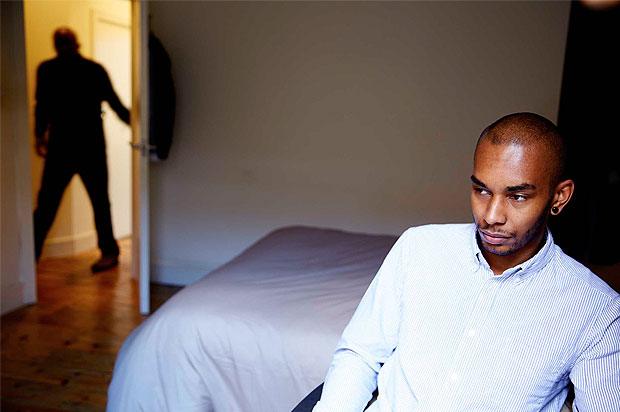Discrimination by landlords
What do you do if your landlord has taken a disliking to you – not because of what you do in your own home, but because of who you are? If your landlord is discriminating against you because of your race, sexuality or gender, you don’t have to put up with it.

It's illegal for landlords to judge you by race, gender or sexuality.
Is it illegal for landlords to discriminate against students?
Stereotypes about students being noisy or causing their neighbours difficulty can lead some letting agents and landlords to operate ‘no student’ policies. Young people who claim benefits can also be turned away. Unfortunately, this is legal. A landlord is entitled to turn someone down based on their financial circumstances, as it’s riskier to let to someone who doesn’t earn a regular wage.
What about for race, nationality, sexuality or gender?
This is illegal. Very illegal. This includes renting a property to you on worse terms than other tenants, treating you differently from other tenants when it comes to using the property’s facilities, or charging you higher rent than other tenants.
What about if I’m disabled?
Equally, refusing to make reasonable adjustments to a property that would allow a disabled person to live there is classed as discrimination.
Can my landlord just turn up unannounced?
No. They can’t just turn up on your doorstep and let themselves in. You’re entitled to 24 hours’ notice. If you don’t respond, the landlord should let you know the time and date when they’ll be entering the property.
If they do visit without warning you, or at an unreasonable hour, you may have a claim for harassment. This is also true if your landlord refuses to complete repairs, threatens you into leaving, or disconnects the gas, water or electricity.
Can my landlord tell me how to live?
Your landlord can’t have excessive control on your lifestyle because you have a right to something called quiet enjoyment. A clause in your contract saying you can’t have parties or guests is likely to be considered unfair. That said, a clause that says you can’t disturb your neighbours would be acceptable.
If your landlord lives in the same property as you some of these rules may not apply.
What do I do if I think my landlord is discriminating against me?
It’s important that you feel safe and comfortable in the place you call home. If you don’t because your landlord’s clearly being discriminatory towards you, it’s essential you speak to someone about their behaviour. This isn’t easy, especially if you’re new to renting.
“The challenge for young people is that it might be their first experience renting, so they may not know their rights,” says Susan Nash from Shelter.
Knowing your rights on discrimination, or speaking to someone about them if you’re unsure, will put you in a better position if you do choose to take action. The Shelter helpline and the Equality Advisory Service offer advice and support, or drop into your student union advice centre.
How can I prove it?
While discrimination is certainly alive and well in the private renting sector, it may be hard to prove your case if you don’t have any evidence. Keep a record of any communication you have with your landlord. If you feel they’re acting inappropriately in some way, keep a diary of events in case you need to take further action.
If you can prove discrimination, you may be able to take your landlord to the small claims court, or the Property Ombudsman. Contact Citizen’s Advice Bureau for free legal advice, and be sure to report any discriminatory or unacceptable behaviour to your student union accommodation office or local council, letting your landlord know that you intend to take action. If you’re really concerned, contact the police.
Susan encourages taking your time to read the finer details before signing a contract to get a sense of who you’re dealing with. A good way to find out if your landlord is reputable is by talking to other people. “Renting can be a competitive market and a lot of people may feel the pressure to sign up to a place quickly, especially if the landlord is putting pressure on them,” she says. “I’d recommend that young people get advice before starting a new tenancy.”
Next Steps
- Chat about this subject on our Discussion Boards.
By Alexandra Shore
Updated on 29-Sep-2015
No featured article







